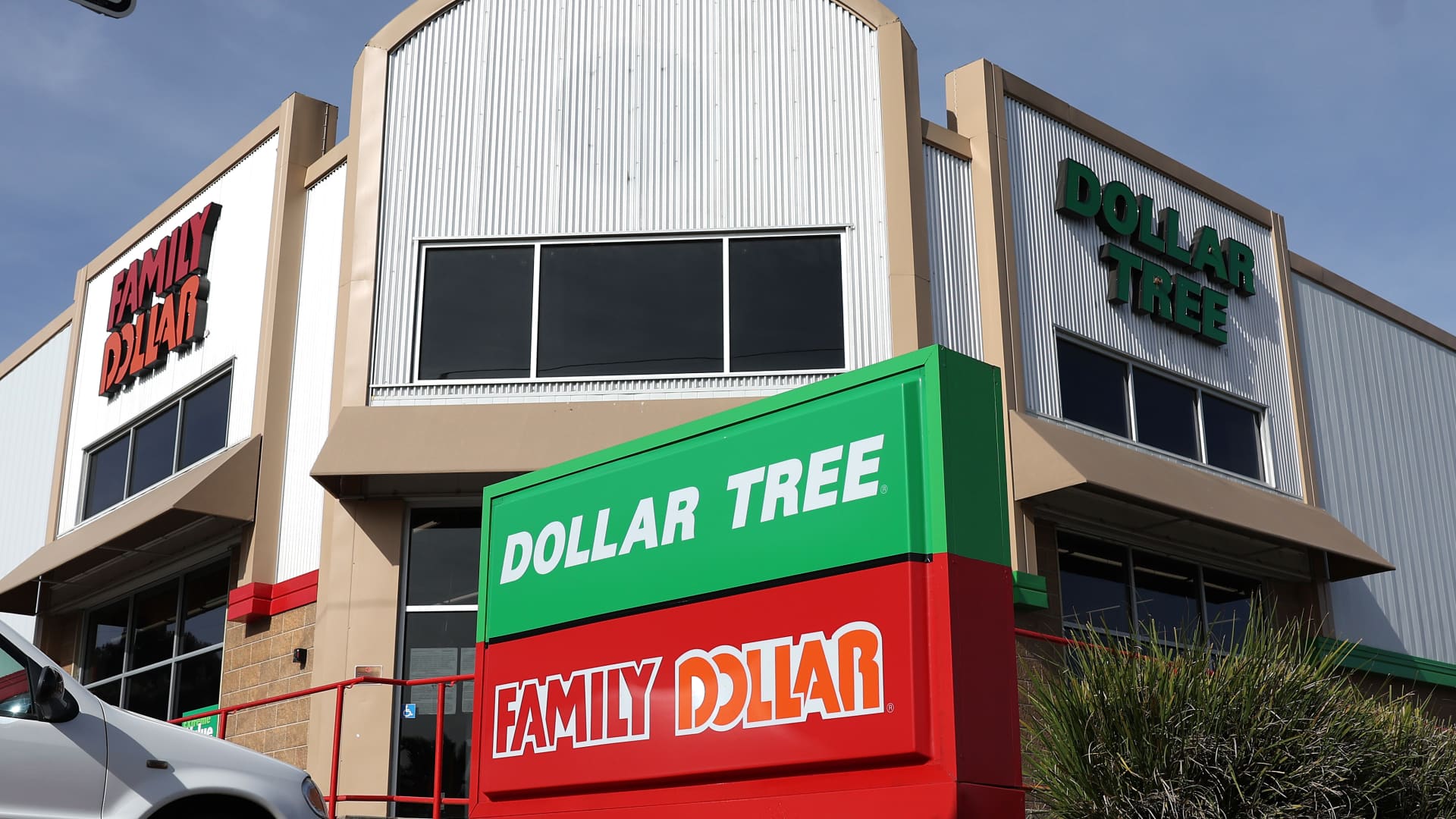Retail Shake-Up: Dollar Tree's Billion-Dollar Divestment of Family Dollar Revealed
Business
2025-03-26 11:15:22Content

In a surprising turn of events, Family Dollar, the budget-friendly retail chain that Dollar Tree acquired for a staggering $9 billion back in 2015, is now set to be sold to private-equity investors for approximately $1 billion. This significant markdown reflects the challenging retail landscape and potential strategic repositioning for the discount store brand.
The dramatic price reduction from the original purchase price highlights the complex dynamics of the retail market and the potential struggles faced by discount retail chains in recent years. Private-equity investors appear to see an opportunity in acquiring the struggling retail chain, potentially hoping to revitalize its business model or restructure its operations.
This sale marks a notable chapter in Family Dollar's corporate history, transforming what was once a high-value acquisition into a substantially discounted asset. The move underscores the volatile nature of retail investments and the ongoing challenges faced by brick-and-mortar discount stores in an increasingly competitive marketplace.
Dollar Tree's Strategic Retreat: Family Dollar's Billion-Dollar Divestment Saga
In the ever-evolving landscape of retail economics, corporate strategies often take unexpected turns, revealing the complex dynamics of business acquisitions and strategic repositioning. The recent developments surrounding Family Dollar and Dollar Tree represent a fascinating chapter in modern retail transformation, highlighting the intricate challenges faced by discount retail chains in a rapidly changing market environment.Unraveling the Retail Giant's Strategic Pivot
The Acquisition Backstory: A Billion-Dollar Investment Revisited
Dollar Tree's 2015 acquisition of Family Dollar for approximately $9 billion was once considered a landmark strategic move in the discount retail sector. The purchase represented a significant consolidation of budget-friendly retail markets, promising synergies and expanded market reach. However, the subsequent years revealed complex challenges that would ultimately test the wisdom of this massive investment. The initial acquisition was driven by ambitious growth strategies, with Dollar Tree leadership believing they could streamline operations and create a more competitive retail entity. Market analysts at the time praised the move as a potential game-changer in the discount retail landscape, anticipating substantial operational efficiencies and enhanced consumer value propositions.Financial Transformation and Market Dynamics
The current divestment of Family Dollar for approximately $1 billion represents a stark contrast to the original acquisition price, signaling profound shifts in the retail ecosystem. This dramatic reduction in valuation reflects multiple interconnected factors, including changing consumer behaviors, increased competition, and structural challenges within the discount retail segment. Private equity investors now see an opportunity where traditional retail strategies have struggled. Their interest suggests potential for restructuring, operational optimization, and potentially extracting value through strategic repositioning. The transaction underscores the volatile nature of retail investments and the constant need for adaptive business models.Operational Challenges and Strategic Recalibration
Family Dollar's journey under Dollar Tree's ownership has been marked by significant operational complexities. The brand faced numerous challenges, including store modernization requirements, competitive pressures from emerging discount retailers, and evolving consumer expectations around shopping experiences. The decision to sell represents a strategic recalibration, acknowledging that the original vision for integration and growth did not fully materialize. Private equity firms are known for their ability to implement aggressive restructuring strategies, potentially seeing untapped potential within the Family Dollar brand that traditional corporate management might have overlooked.Economic Implications and Industry Insights
This divestment carries broader implications for the retail sector, reflecting ongoing transformations driven by digital disruption, changing consumer preferences, and economic uncertainties. The substantial price reduction from the original acquisition cost highlights the inherent risks in large-scale retail consolidation strategies. Economists and industry experts will likely scrutinize this transaction as a case study in corporate strategy, examining the delicate balance between ambitious expansion and sustainable business growth. The move suggests that even established retail giants must remain agile and willing to make difficult strategic decisions in response to market dynamics.Future Outlook and Market Speculation
As private equity investors prepare to take control of Family Dollar, speculation abounds regarding potential revitalization strategies. The brand's future may involve significant operational restructuring, technological investments, and potentially a reimagined approach to discount retail positioning. The transaction represents more than a simple asset sale; it symbolizes the ongoing evolution of retail strategies in an increasingly complex and competitive marketplace. Stakeholders will be watching closely to see how this strategic pivot unfolds and what insights it might offer for similar retail transformation efforts.RELATED NEWS
Business

Main Street's Confidence Crumbles: Business Owners Sound Alarm on Economic Uncertainty
2025-04-08 17:56:29







